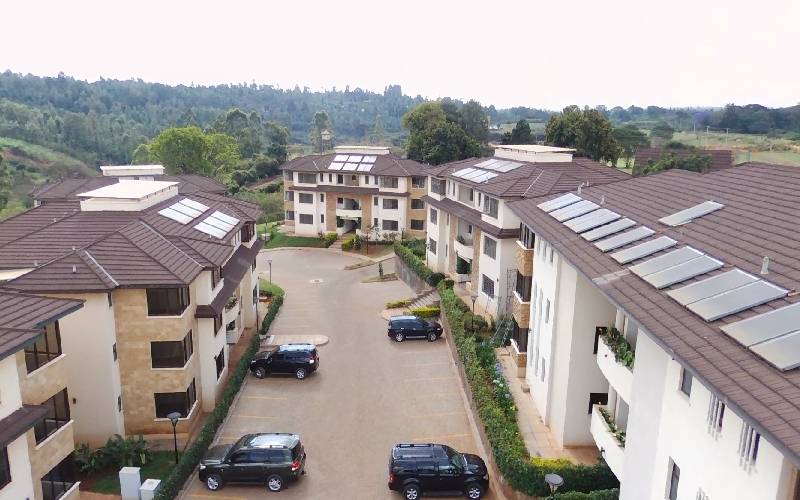Living in a rented property comes with its unique set of challenges and responsibilities, but for tenants in Kenya, understanding their rights can help avoid disputes and protect against exploitation by unscrupulous landlords. Given the high demand for affordable housing in cities like Nairobi, tenants often find themselves in a power imbalance with landlords, leading to issues such as arbitrary rent increases, harassment, or even wrongful eviction. However, Kenyan law provides a strong framework to ensure tenants’ rights are respected.
Here’s a comprehensive guide to tenants’ rights in Kenya, including laws governing rental agreements, rent increments, deposits, evictions, and much more.
Key Laws Governing Landlord-Tenant Relationships in Kenya
Several laws govern rental agreements in Kenya, ensuring both tenants and landlords have a clear understanding of their rights and obligations:
- Registered Land Act: Ensures that property owners maintain habitable premises and outlines tenant rights related to leases and disputes.
- Landlord and Tenant (Shops, Hotels, and Catering Establishments) Act (Cap 301): Primarily covers commercial leases but contains provisions that also apply to residential properties.
- Distress for Rent Act (Cap 293): Allows landlords to recover unpaid rent through tenants’ possessions if they are in arrears.
- Transfer of Property Act: Requires landlords to disclose any significant defects in the property at the beginning of a lease.
- Rent Restriction Act (Cap 296): Regulates rent increases and dispute resolution for residential properties with rent below Ksh 2,500.
Key Rights of Tenants in Kenya
Each of the acts mentioned above gives tenants certain protections, but here’s what tenants need to know about their specific rights:
1. Right Against Arbitrary Rent Increments
Landlords cannot increase rent arbitrarily. Any rent increment should follow a clear notice process:
- Written Notice: Tenants must receive a written notice of at least one month before the rent increase.
- Right to Object: Tenants have the right to object to the increase. In cases where a landlord insists, the tenant can seek help from bodies like the Urban Tenants Association or file a dispute with the Rent Tribunal.
- Justifiable Reasons: Rent increases usually occur after property renovations or if the inflation rate affects maintenance costs. A landlord should specify such reasons in the notice.
2. Distress for Rent
Under the Distress for Rent Act, if a tenant falls behind on rent payments, a landlord may attempt to recover the unpaid rent by seizing goods belonging to the tenant. However, this process must be carried out through licensed auctioneers, and only items within the property can be seized. This right does not extend to illegal seizures without notifying the tenant, which is against the law.
3. Eviction Procedures
Kenyan law protects tenants from sudden or forceful evictions. The process is as follows:
- Notice of Termination: A landlord must issue a formal notice of termination, detailing the reasons and the date by which the tenant should vacate.
- Tribunal Orders for Eviction: If a tenant refuses to vacate, a landlord must apply to the Landlord and Tenant Tribunal for a formal eviction order. Eviction without following these steps is illegal.
4. Refundable Deposits
Security deposits are typically paid before occupying a property and are refundable upon vacating, provided the tenant leaves the premises in good condition. Important aspects to remember:
- Timeline for Refund: Tenancy agreements often specify the timeframe for deposit refunds, usually within 30 days of moving out.
- Deductions: Landlords can deduct unpaid rent, utility bills, or damage repair costs from the deposit. In cases of disagreement, tenants can negotiate or escalate the issue legally.
5. Right to a Safe and Habitable Living Space
Landlords are responsible for ensuring properties are safe, habitable, and properly maintained. This includes functional utilities like water, electricity, and safe wiring. If repairs are needed, tenants have the right to request timely repairs. However, they should avoid making major repairs themselves, as this could lead to deposit deductions or disputes.
6. Privacy Rights
Tenants have the right to privacy in their rented homes, and landlords cannot enter without permission except in emergencies, such as fires or natural disasters. Landlords are expected to provide adequate security measures, including functional locks and doors. Tenants may add extra locks with the landlord’s permission to ensure personal safety.
7. Right to Fair Rental Agreements
Tenancy agreements should outline clear terms for both parties and prevent misunderstandings. While informal agreements are still common in Kenya, written contracts provide a stronger basis for resolving disputes. The agreement should cover rent amount, payment schedules, notice requirements, repair obligations, and deposit terms.
Tenant Support Organizations and Dispute Resolution
Several bodies assist tenants with disputes or unfair treatment:
- Urban Tenants Association of Kenya: A resource for tenants facing issues such as unfair rent hikes or harassment.
- Landlord and Tenant Tribunal: Handles disputes between landlords and tenants and can issue binding resolutions for matters such as evictions, rental increments, and property maintenance.
Understanding tenant rights in Kenya is crucial for both tenants and landlords. With the housing demand so high, particularly in urban areas, landlords are in a position of power, which can lead to exploitation. By knowing their rights, tenants can better protect themselves and ensure a fair and safe rental experience. Whether dealing with rent increments, maintenance requests, evictions, or deposit disputes, Kenyan law provides avenues for tenants to seek justice and maintain dignified living conditions.





